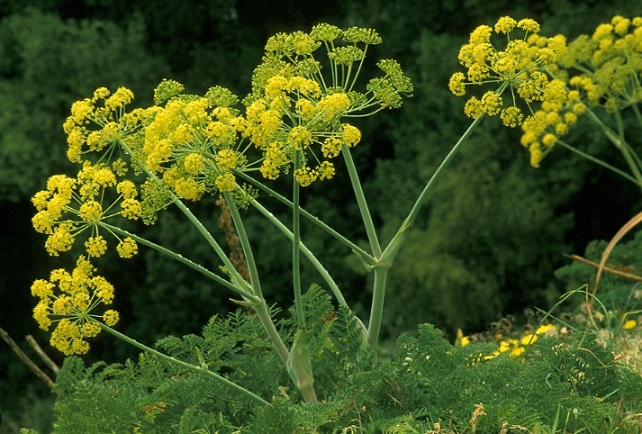Natural Plant Compounds Show Promise in Fighting Viruses via Cellular Cleanup Process
Nikhil Prasad Fact checked by:Thailand Medical News Team Jul 29, 2025 6 months, 3 weeks, 6 days, 3 hours, 46 minutes ago
Thailand Medical News: Natural Antivirals that Hijack the Body’s Cleanup Process to Fight Viruses
In a groundbreaking study by researchers from the Department of Biotechnology, Chemistry and Pharmacy at the University of Siena in Italy, new hope is emerging from nature’s medicine cabinet. Scientists have uncovered how certain natural compounds or phytochemicals can help the body fight off viral infections by tapping into a fundamental cellular process called autophagy—a kind of internal housekeeping system that helps cells recycle damaged parts and defend against invaders.
 Thapsigargin extracted from the Thapsia plant showed antiviral effects against SARS-CoV-2 and Influenza
Thapsigargin extracted from the Thapsia plant showed antiviral effects against SARS-CoV-2 and Influenza
This
Thailand Medical News report explores how this process, which literally means “self-eating,” may be the key to fighting not just current viral threats like SARS-CoV-2, but also future pandemics. The researchers, led by Ilaria Cursaro, Sara Rossi, Stefania Butini, Sandra Gemma, Gabriele Carullo, and Giuseppe Campiani, reviewed over 200 studies to investigate how plant-based compounds can modulate autophagy and suppress viral activity.
Understanding Autophagy and Viruses
Autophagy is the cell’s way of cleaning up damaged or unnecessary parts and defending against infections. But viruses are clever. Some manipulate this system to help themselves replicate. Others try to shut it down to avoid detection by the immune system.
The study explains that depending on the virus, autophagy can be either a weapon against the infection or a tool exploited by the virus. For example, the herpes virus inhibits autophagy to avoid being degraded, while hepatitis C and SARS-CoV-2 hijack it to help themselves multiply inside cells.
This dual role makes autophagy an attractive target for antiviral therapies—but also a complex one. That’s where natural compounds come in.
Nature’s Arsenal of Autophagy Modulators
The team identified several plant-based molecules or phytochemicals that can either activate or block parts of the autophagy process. Some of the most promising include:
-Wortmannin: A fungal product that inhibits autophagy by blocking a key enzyme, shown to reduce viral replication in influenza and Zika virus.
-Thapsigargin: Extracted from the Thapsia plant, it inhibits a later stage of autophagy and outperformed antiviral drugs like remdesivir in lab tests against COVID-19 and influenza.
-Ursolic acid and baicalin: Found in herbs and fruits, these compounds help activate autophagy to support immune responses.
-Epigallocatechin gallate (EGCG): A green tea polyphenol that promotes complete autophagy and reduces hepatitis B virus levels.
These natural compounds are not just b
locking viruses directly—they are empowering the host’s own cells to resist infection. Some act early in the autophagy process, while others intervene during the final steps, preventing viruses from escaping destruction.
Implications for Future Treatments
The study reveals that natural autophagy modulators could become vital tools in the global fight against infectious diseases. Unlike traditional antivirals that target the virus directly (and may become ineffective due to mutations), these host-directed strategies are less likely to be thwarted by viral evolution.
By modulating the body’s own defense pathways, these compounds could help treat a broad spectrum of viruses—from the common flu to emerging threats like SARS-CoV-2. However, much more research is needed to translate these lab findings into safe, effective human treatments.
The study findings were published in the peer reviewed journal: Medicinal Research Reviews
https://onlinelibrary.wiley.com/doi/10.1002/med.70003
For the latest on Herbs and Phytochemicals, keep on logging to
Thailand Medical News.
Read Also:
https://www.thailandmedical.news/news/boswellic-acids-reduce-systemic-inflammation-in-covid-19-patients-through-nf-kb-pathway-modulation
https://www.thailandmedical.news/news/elderberry-extract-and-quinine-show-promising-antiviral-potential-against-influenza-and-covid-19
https://www.thailandmedical.news/news/indonesian-scientists-explore-the-anti-inflammatory-potential-of-melaleuca-cajuputi-extract-in-fighting-covid-19
https://www.thailandmedical.news/articles/herbs-and-phytochemicals
